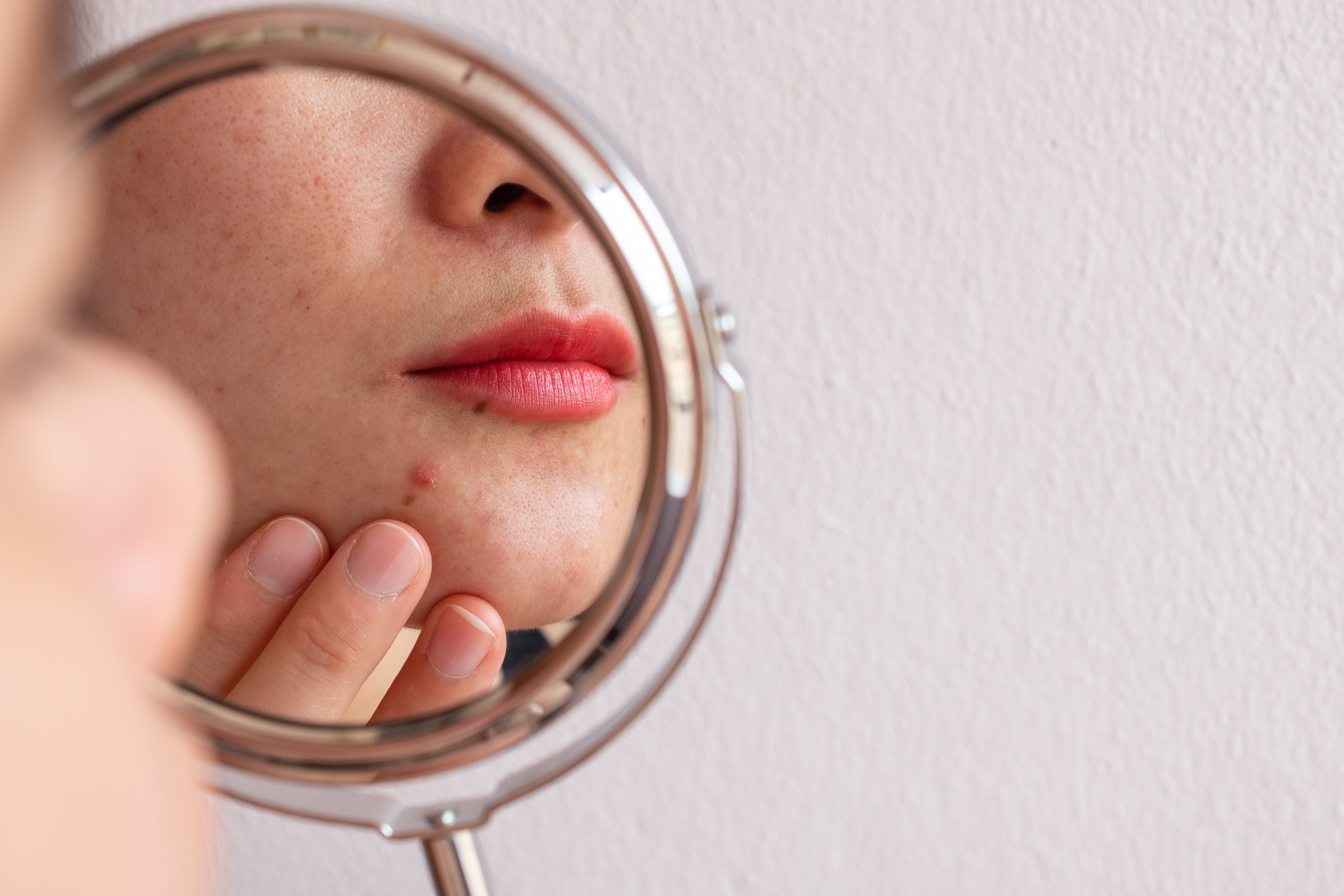Spring Skincare Tips for These 5 Common Conditions
Aside from preparing yourself for weeks of sniffling and sneezing, people with skin allergies and sensitive skin should also get ready for other signs of trouble this spring.
People with skin allergies and sensitive skin should be able to enjoy springtime, just like anyone else. However, the arrival of warm weather brings the return of spring allergies.
According to the Yale School of Medicine (YSM), changing weather patterns and warmer days, combined with the budding of trees and floating pollen, can trigger a number of conditions for susceptible individuals. They emphasized the need for skincare routines as the altering of seasons could "could cause irritation for patients with conditions like eczema or acne."
On top of the usual sneezing, congestion, and itchy skin problems, there are also other conditions that can be linked with seasonal allergies. Here are the 5 allergy-related skin conditions that people may experience this spring and how to best handle them.
1. ECZEMA

Also known as atopic dermatitis, eczema is a skin condition wherein the skin's protective layers have become extremely vulnerable to external irritants, leaving behind rashes and itchy, dry skin. While it is not entirely an allergy, eczema can still be aggravated by unwanted exposure to seasonal allergies, like pollen suspended in the air.
For people dealing with eczema this spring, the YSM recommends the use of a gentle cleanser and a moisturizer to keep the skin barrier intact. "While it is tempting to scratch eczema-prone skin, it will only make it worse. If gentle, moisturizing products are not helping, seek out help from a dermatologist who can prescribe topical treatments, medications, or injection medications," they added.
2. HIVES

Aside from the usual triggers like insect bites, pollen, food allergens, latex, and poison ivy, a high pollen count can also set off hives. Also known as urticaria, hives are red, itchy welts that result from a skin reaction and usually last for weeks.
What's the first line of defense against hives? We recommend avoiding triggers. However, it's still best to converse with your allergist about relief medications for weather-induced hives before "jumping to conclusions."
"What looks like a hive to one person may actually be something else. It’s important for patients with any sort of skin reaction to be seen by a doctor who can make a proper diagnosis," the YSM added.
3. SUN EXPOSURE

While sun protection is essential year-round, it's easy to ignore SPF after months of gloomy weather and winter storms. The first few warm days this spring serve as a helpful reminder to apply sunscreen every now and then. When spending time outdoors, look for a sunscreen with a broad-spectrum SPF of 30 or greater, and wear a hat and sun-protective clothes.
4. PUFFY EYES AND DARK CIRCLES

According to Prevention.com, most allergy symptoms are caused by histamines. "Those histamines can cause swelling and inflammation in your eyes, making them feel watery, gritty, or itchy," the article read.
People susceptible to allergies should also expect itchy, watery, and puffy eyes this spring. Just like an irritated nose due to sneezing and nose-wiping, do not rub and scratch your eyes to prevent aggravating the condition. You can wear sunglasses to deflect away pollen from your eyes or just gently wipe your eyes with cool water.
5. ACNE

According to YSM, those with acne-prone skin may experience breakouts in the spring due to increased sweating brought on by the warm weather.
We suggest changing your moisturizers since the heavy ones that you used to alleviate your dry skin in the winter might irritate your acne-prone skin within weeks of spring. Always look for non-comedogenic skincare products that won’t clog your pores to help with breakouts.
Moreover, make sure to put on a fresh set of clothes everyday to avoid wearing clothes teeming with pollen. This will help in preventing the transfer of harmful pollen from your clothes to your bed, allowing you to sleep comfortably. If you're looking for clothes that will make your spring free from allergies, visit our hypoallergenic collections here.
Lastly, visit a dermatologist if you’re dealing with acne and other skin-related issues you’ve encountered this spring for proper healthcare guidance. To learn more about how seasonal allergies affect your skin, visit here. You may also read our related blog: 5 Organic Cotton Clothes Everyone Should Own To Stay Allergy-Free This Spring.
DISCLAIMER: The information presented on Cottonique is not, and will never be, intended to be a substitute for professional medical advice, diagnosis, or treatment. All content materials found on this site, from text, treatments, outcomes, charts, graphics, photographs, and study findings, are created and published for general informational purposes only. It should not, in any way, be construed as a standard of care to be followed by a user of the website.
Thus, readers are encouraged to verify any information obtained from this website with other accurate references and review all information regarding any medical condition or treatment with their physician. As Cottonique strives to help those with allergies live with better days, the hypoallergenic apparel brand encourages everyone to always seek the advice of their physician or other qualified health providers with any questions they may have regarding a medical condition.




